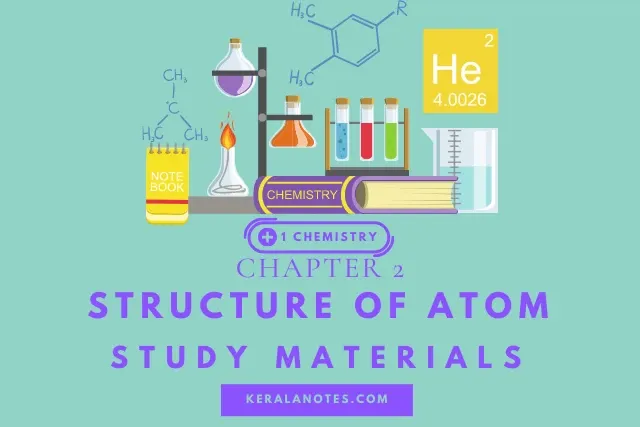The structure of atom is explained through three major concepts which are the quantum theory, the wave-mechanics and the nuclear physics. The structure of atom consists of neutrons, protons and electrons. Neutrons and protons are grouped together as Nucleus and electrons are the outer clusters of atom." The atomic structure of an atom plays a major role in its chemical properties. An element's atomic structure determines its electronic configuration, which becomes the basis of the element's chemistry. The nucleus contains positively charged protons and electrically neutral neutrons. Electrons orbit around the nucleus—at a distance ranging from tens to several thousand angstroms, which is approximately 106 km)—and balance the charge.
The atom is a very small fundamental object that all the elements are made up of. It is the basic building block of nature. There are mainly two parts in an atom. The first part is the protons and neutrons which are known as the nucleus of an atom while the other half portion is made up of electrons that revolve around the nucleus.
| Board |
SCERT, Kerala |
| Text Book |
NCERT Based |
| Class |
Plus One |
| Subject |
Chemistry Notes |
| Chapter |
Chapter 2 |
| Chapter Name |
Structure of Atom |
| Category |
Plus One Kerala |
Kerala Syllabus Plus One Chemistry Notes Chapter 2 Structure of Atom
Topics covered:
- The significant points discussed in this chapter are:
- Discovery of Sub-atomic Particles
- Discovery of Electron
- Charge to Mass Ratio of Electron
- Charge on the Electron
- Discovery of Protons and Neutrons
- Atomic Models
- Thomson Model of Atom
- Rutherford’s Nuclear Model of Atom
- Atomic Number and Mass Number
- Isobars and Isotopes
- Drawbacks of Rutherford Model
- Developments Leading to the Bohr’s Model of Atom
- Wave Nature of Electromagnetic Radiation
- Particle Nature of Electromagnetic Radiation: Planck’s Quantum Theory
- Evidence for the quantized* Electronic Energy Levels: Atomic spectra
- Bohr’s Model for Hydrogen Atom
- Explanation of Line Spectrum of Hydrogen
- Limitations of Bohr’s Model
- Towards Quantum Mechanical Model of the Atom
- Dual Behaviour of Matter
- Heisenberg’s Uncertainty Principle
- Quantum Mechanical Model of Atom
- Orbitals and Quantum Numbers
- Shapes of Atomic Orbitals
- Energies of Orbitals
- Filling of Orbitals in Atom
- Electronic Configuration of Atoms
- Stability of Completely Filled and Half Filled Subshells
Chapter 2: Structure of Atom Notes
Chapter 2: Structure of Atom Notes - Preview
PREVIEW
Plus One Chemistry Chapter Wise Notes PDF Download
Feel free to comment and share this article if you found it useful. Give your valuable suggestions in the comment session or contact us for any details regarding HSE Kerala Plus one syllabus, Previous year question papers, and other study materials.
Plus One Chemistry Related Links
Other Related Links
We hope the given HSE Kerala Board Syllabus Plus One Physics Textbook Solutions Chapter Wise Pdf Free Download in both English Medium and Malayalam Medium will help you.
If you have any query regarding Higher Secondary Kerala Plus One NCERT syllabus, drop a comment below and we will get back to you at the earliest.
Plus One Chemistry Notes Chapter2 Structure of Atom
Kerala Syllabus






